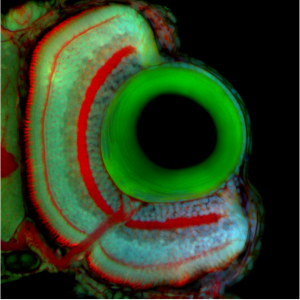Postdoc research fellow
Posted by Rodrigo Young, on 11 November 2024
Job type:
Location: University College London - Institute of Ophthalmology
Closing Date: 20 November 2024


The Research Fellow will work as part of a team to identify new genes required for eye formation and size definition and unravel their function to expand our knowledge of the aetiology of human genetic eye globe defects.
The research project combines basic science with genome variant interpretation by studying the genome of patients with eye globe congenital defects. It specifically focuses on the mechanisms of eye development in health and disease, particularly the effects of mutations on zebrafish eye development. Research techniques that will be used include genome editing, whole-mount embryo histological techniques, RNA transcriptome experiments, confocal imaging, and cell transplantation.
The salary offered for this post is £42,099 per annum, including the London allowance (UCL grade 7 spine point 30).
The position is available from 3 February 2025 and is funded for 12 months, in first instance.
About you
The candidates should have a PhD in cell biology, neuroscience, molecular biology, or a related discipline, ideally using zebrafish as an animal model. Excellent communication skills and a strong commitment to high-quality research. (S)he is expected to have experience in zebrafish embryology techniques, adult fish colony maintenance and advanced microscopy skills. The applicant should enjoy working as part of a team as well as being able to work independently.
Applications are invited for the post of Research Fellow at UCL Institute of Ophthalmology, ranked the best place in the world to study Ophthalmology (CWUR Rankings by Subject 2017).
The successful candidate will join the newly established research team of Dr Rodrigo Young to investigate the role of genes related to human eye globe defects during development using zebrafish as an animal model system.
The post-holder will benefit from close interaction with the internationally renowned research teams, providing expert support in advanced microscopy, bioinformatics, and genome editing techniques.
This Research Fellow post offers an exciting opportunity to play a key role in identifying the genetic causes of inherited eye globe defects and studying the genes involved in their aetiology.
Salary: £42,099 per annum, including London Allowance
Start date: 3 February 2025
Closing Date: 20 November 2024
Scientific fields: Development and disease
Model systems: Zebrafish, Human
Duration: Fixed term
Minimum qualifications: PhD

